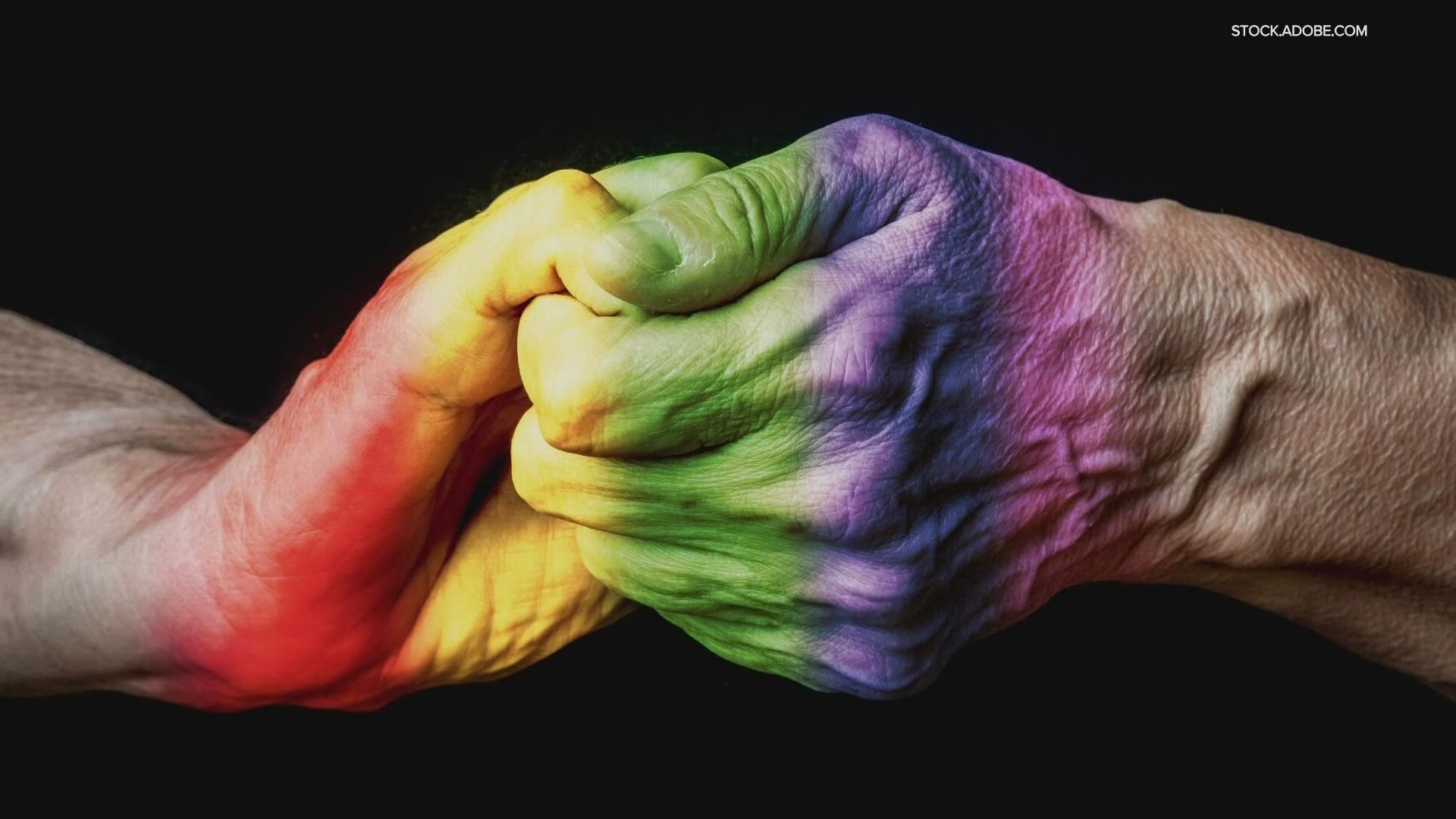OREGON, USA — As the population gets older, many in the LGBTQ+ community feel as though they’ve been left out of the conversation. A new report shines a light on the health care needs of older adults in Oregon's LGBTQ+ community and the challenges they face in accessing resources.
“What I think is so powerful about this survey is that this gives hard facts on where the holes are, where we’re missing services and why folks don’t access those services,” said Stacey Rice, a diversity and inclusion consultant.
The Oregon Department of Human Services and University of Washington's Goldsen Institute released an executive summary of the report which provides data to educate and inform the state and the public about LGBTQ+ Oregonians 55 and older.
“One of the biggest things that came out of this is that service providers need to be LGBTQ competent — that they know what this community is and how to serve this community,” Rice said.
“Growing up without a community or an environment that is as supportive as it is now, even though we have quite a ways to go, makes their experience uniquely different,” said Dr. Mike Franz, senior medical director of behavioral health at Regence.
RELATED: Oregon advocates offer support for transgender people amid increasing threats | Straight Talk
LGBTQ+ seniors face challenges and traumas unique to their age group and lived experience.
“If you look back at folks who are LGBTQ+ older adults and elders, the times they have gone through in their lifetimes — just having to be totally in the closet, couldn’t be out, facing massive discrimination, violence ... those formative years of our lives have just been so difficult and so hard,” Rice said. “I’m a trans woman. I came out in 1999 and transitioned then. That was 22 years ago. Things have changed a lot since then.”
Oregon has the ninth highest rate of suicide mortality in the nation. More than a fifth (21%) of the LGBTQ+ older adult participants in the survey said they experienced suicidal ideation in the past year. That’s significantly higher than the general public.
“Unfortunately, folks that are older that identify as LGBTQ are significantly more likely to experience some behavioral health conditions, whether it be anxiety, depression or substance use disorder,” Dr. Franz said. “The critical first step is to acknowledge that there may be an issue and to seek out some help.”
However, the report found that there are serious barriers to getting that help when it comes to older LGBTQ+ adults.
More than half of the survey participants have health care service needs that are not met, the most common challenges being:
- Difficulty in applying or fear of not meeting qualifications
- High cost
- Services experienced or perceived as not being LGBTQ+ inclusive
- Lack of availability and difficulty locating and accessing services
“A big part of that is that people are hesitant to go to services because they don’t know how they’re going to be treated — if they’re going to be discriminated against,” Rice said.
The report also asked participants about discrimination and adverse experiences. It found nearly 60% have experienced discrimination within the last year. That also plays a major role when it comes to accessing resources and services.
Rice said from doctor’s appointments to moving into senior living, many LGBTQ+ seniors assess their safety and potential for discrimination.
“Most folks go back into the closet because you don’t know how the people around you are going to act, how the folks who run the place ... how are they going to react?” Rice said.
More than one in five (21%) survey participants said they do not disclose their sexual or gender identity to health care, aging or other service providers.
The American Medical Association has stated that health care providers’ failure to ask, and health care consumers’ failure to disclose, can have adverse health consequences.
Nearly a quarter (24%) of LGBTQ+ older adult participants have experienced elder abuse in the past year. More than three-quarters (76%) did not report the experience to the authorities.
The most common barriers to reporting abuse are:
• Distrust of authorities’ fair treatment of LGBTQ+ people (26%)
• Feeling ashamed because of the experience (20%)
• Lack of knowledge on how to report (16%)
• Fear of having to disclose their identity (16%)
RELATED: Counselor gives parents advice on talking to LGBTQ+ youth about mental health | Healthier Together
“They (LGBTQ+ seniors) also tend to live more in isolation. Older adults who identify as LGBTQ are much less likely to have children and also to live alone and age alone,” Franz said. “And sometimes, without the caregiver support, it’s just more challenging for them to meet their needs.”
The report revealed the need for health care and other service providers to be competent and compassionate to the needs of LGBTQ+ older adults.
Rice hopes this information will inform lawmakers in Salem to better address needs around the state.
“I think one thing it boils down to is that we just want to treat everyone as human beings and with compassion and care,” Rice said.
If you're an LGBTQ+ older adult who is looking for resources and community, Rice suggests starting with SAGE Metro Portland and the Q Center.

